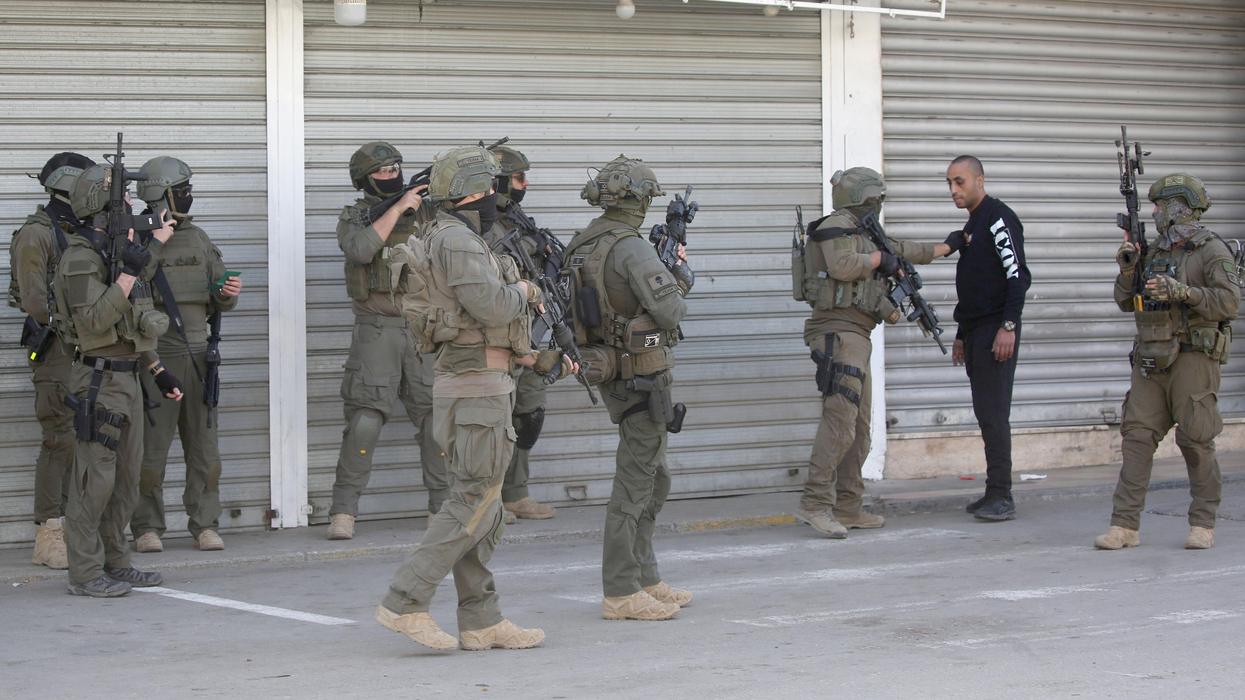Sen. Lindsey Graham (R-S.C.) has an A+ rating from the anti-abortion group Susan B. Anthony Pro-Life America. Last year, the Republican introduced a 15-week federal abortion ban in the Senate. Graham has said of his pro-life efforts, “America is at her best when she’s standing up for the least among us.”
According to the health ministry in Hamas-controlled Gaza, more than 10,000 people have now been killed in Israel’s continued strikes.
More than 4,000 of them are said to be children — many of them, no doubt, very young, infants even.
The Washington Post reported of a man in Gaza, whose “three daughters — Malak, 11, Yasmin, 6, and Nour, 3 — and his only son, 10-year-old Malik, were lost beneath the rubble.” There are countless similar stories of the death and despair reining down on Palestine’s youngest. UNICEF spokesperson James Elder said that “Gaza has become a graveyard for children.”
Surely these children, many of whom can’t comprehend or understand the politics of why their world is collapsing all around them, count as “the least among us.”
Not if you’re Lindsey Graham.
“Level the place!” the senator said of Gaza in a Fox News interview in mid-October. He appeared to say it was okay to attack the entire population. Graham justified his apparent preference for total war by adding, “We’re in a religious war here. I am with Israel. Do whatever you have to do to defend yourself.”
That was no one-off. “One thing I want to say for sure,” Graham declared on CNN’s State of the Union on Sunday, “is Israel’s not engaged in genocide.”
Graham then proceeded to make justifications that were at least somewhere in the orbit of genocide.
“Another thing we need to deal with is the whitewashing of the status of people in Gaza,” Graham said. “I’m sure there are plenty of people who would love to be free of Hamas, but the most radicalized people on the planet live in the Gaza Strip.”
“They’ve been taught since birth to kill people and hate the Jews,” the senator continued, seeming to think that even the youngest in Gaza shared a collective guilt that he appears to believe deserves collective punishment.
When asked by the host, “But no pause? No humanitarian pause?” Graham basically said that he was for aid if Israel could offer it, yet added, “After World War II did anybody ask us these questions?”
He was about to assure viewers that he had no qualms about mass bombing civilians.
“You’ve got to realize the United States dropped two atomic bombs on cities in Japan to end the war,” Graham said. “I think this is total war between Israel and Hamas.”
It’s worth noting here that Hamas thinks this too, a total war, that by definition includes civilians, as terrorists demonstrated in Israel in October.
This is not the first time Graham has made the World War II comparison. Earlier this month, the senator told CNN, “If somebody asked us after World War II ‘is there a limit to what you would do to make sure Japan and Germany don’t conquer the world?’ Is there any limit to what Israel should do to the people who are trying to slaughter the Jews?"
"The answer is no,” Graham said, responding to his own question, and seeming to give an enthusiastic green light for Israel to kill as many civilians as it sees fit.
Earlier in the interview, CNN’s Abby Phillip asked Graham, “Is there a threshold for you, and do you think there should be one for the United States government in which the U.S. would say let's hold off for a second in terms of civilian casualties?”
“No,” Graham replied with zero hesitation.
Close to the day Graham gave this interview, international NGO Defense for Children International Palestine estimated that 40 percent of the casualties in Gaza at the time were children.
Those are many, many innocent lives lost — certainly the least among us or at least among the Palestinians and Israelis. It’s one thing to acknowledge that there will be unfortunate casualties in any war, it’s quite another to dismiss them or worse — lust for them.
I am pro-life, and my desire to protect it extends well beyond birth, to all children, everywhere, and logically, even beyond youth. It would seem not only absurd but cruel to support the former position but not the latter.
Lindsey Graham may be anti-abortion. But he is not pro-life.
















